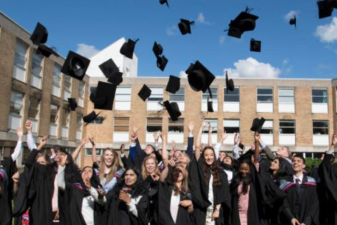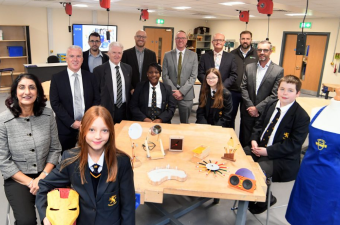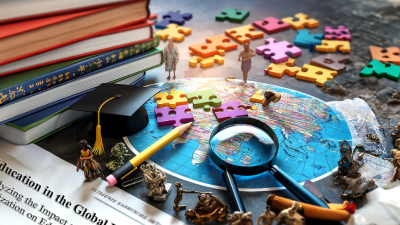Research into the nature of higher education holds immense research significance in many ways. Whether exploring higher education theoretically or practically, it requires a clear understanding of its essence and a deep inquiry into its fundamental nature, informed by current realities and social change. In today's economic and social landscape, higher education serves as the most crucial stage of education, connecting the field with society.The true essence of higher education lies in transcending mere knowledge transmission and skills training, striving to cultivate well-rounded individuals with independent personalities, critical thinking, innovative spirit, and social responsibility, as well as training highly specialized talents for social and national development. University education, as a temple of enlightenment, bears the sacred mission of intellectual transmission. In this temple, students absorb a continuous stream of knowledge, not only to enrich their academic reserves but also to cultivate their independent thinking and creativity.
The rudiments of universities date back to ancient Greece, when teachers and students lived, studied, and interacted together. In modern times, universities primarily served the elite, teaching Latin and theology to the nobility. After the Industrial Revolution, the rising classes established specialized vocational schools to provide upward mobility for the poor. This marked the evolution of Newman's liberal arts education and Humboldt's specialized education. Social progress has proven the strengths of each educational system. Currently, leading American universities tend to prioritize a liberal arts education at the undergraduate level, emphasizing a solid foundation and well-rounded development, while graduate programs prioritize specialized education, focusing on a specific discipline for in-depth study and research. The United States offers students greater freedom and guidance in higher education.
From a top-down perspective, from the perspective of schools:
We live in an era of rapid economic development, with people's material needs steadily increasing, and the pressures placed on individuals by the times are increasing. Therefore, for most young people, satisfying survival needs is paramount. Consequently, universities are largely employment-oriented, and university majors primarily focus on cultivating highly skilled professionals. This is understandable.
From a bottom-up perspective, from the perspective of individuals:
Individual needs for attending university are actually divided into two categories: survival needs and spiritual needs.
From a survival perspective, we need to acquire a skill. In the future, we will need to support ourselves and our families, and a career with an income is essential. Therefore, from a survival perspective, all we can do is to master our major to the best of our ability and absorb what we learn in university. Whether we enjoy it or not, we should master a professional skill to support ourselves and live comfortably in society.
As for spiritual needs, when the broader environment cannot provide more, we must obtain what we need through both professional study and personal leisure. In terms of professional learning, beyond the content itself, it's important to learn to draw experience from the very act of learning, drawing from it universal principles for thinking and learning—these principles apply only to oneself. In your free time, as the saying goes, "Read ten thousand books, travel ten thousand miles, and meet countless people." I believe there's no incomparable relationship between these three. Each is crucial, and each can broaden your horizons and cultivate your thinking. Reading ten thousand books opens your eyes to the vast world and allows you to approach things with humility; traveling ten thousand miles broadens your horizons and helps you avoid arrogance; meeting countless people—not just good ones, but also bad ones—helps you understand the rules of society and better understand the kind of person you want to become.
In addition to these, it's crucial to maintain a vigilant mind, adept at extracting the essence from what you've learned and experienced, not solidifying your inner defaults, controlling your own thinking style and content, and not being easily swayed by external influences. Before you can truly listen to your inner voice, you must first enrich it and allow it to speak. When you hear your inner voice, don't blindly follow it; discern whether it's driven by greed or genuine desire.
Conclusion
The comprehensive nature of university education can be described as a magnificent and complex educational palace, rich in content and encompassing knowledge transmission, character building, practical training, and innovation cultivation. This comprehensive nature is a significant characteristic that distinguishes university education from other stages of education and is the fundamental guarantee for cultivating well-rounded individuals.
- University education, as a palace of knowledge, bears the heavy responsibility of both transmission and innovation
The transmission of knowledge is not merely for passing exams, but also for cultivating students' critical thinking and problem-solving abilities. Students can experience the wonder of interdisciplinary intersections and the fusion of theory and practice, thereby cultivating independent thinking and innovative abilities.
- Bearing the mission of shaping character and humanism.
Beyond professional knowledge, universities are also a cradle of character and humanistic spirit. Through extensive humanities studies and social practice, students can establish correct values, cultivate civic awareness, and become responsible citizens.
- Emphasizing the importance of practice and innovation.
Universities provide students with abundant practical opportunities, allowing them to apply their knowledge in real-world scenarios, improving their hands-on skills and practical problem-solving abilities. Universities are also a cradle of innovation, cultivating students' innovative spirit and entrepreneurial abilities.
The essence of university education lies in the holistic development of students, equipping them with professional competence, moral character, practical skills, and innovative awareness. This comprehensive cultivation is not only for the growth of individual students but also for making a positive contribution to the prosperity and progress of society.








